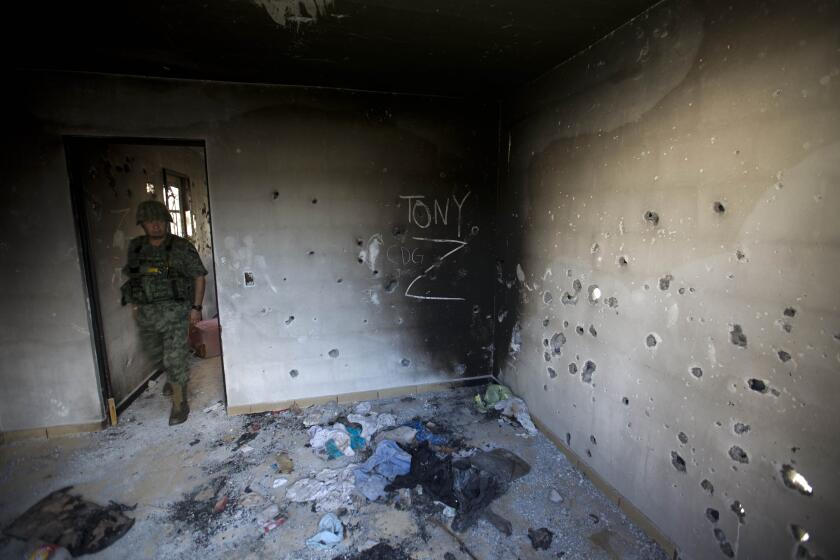U.S. Rejects Kadafi Offer of One-Time Chemical Plant Inspection
WASHINGTON — The United States on Friday rejected a proposal by Libyan leader Moammar Kadafi for a one-time-only international inspection of a factory that the United States says is producing chemical weapons.
But the State Department appeared to leave the door open for further negotiations with Col. Kadafi that might allow some other arrangement for more regular international inspections of the Libyan chemical plant.
Last week, in a television interview, President Reagan said that the United States has been “discussing” with its allies the possibility of taking military action to destroy the huge Libyan factory southwest of Tripoli.
Kadafi has said that the plant manufactures pharmaceuticals, not chemical weapons. During the last few weeks, he sent a message through the Italian government proposing an international inspection of the Libyan facility.
State Department spokeswoman Phyllis Oakley suggested Friday that Kadafi’s proposal did not go far enough.
“A one-time inspection could not be conclusive,” she said. “ . . . A chemical weapons plant could easily be modified to appear as a legitimate industrial chemical plant, such as a pharmaceutical or fertilizer factory. All traces of chemical-weapons production could be erased from a plant on extremely short notice.”
” . . . A Libyan-managed tour of the facility would not alleviate concerns about the true nature of (the factory),” Oakley added.
Next week, an American delegation headed by Secretary of State George P. Shultz will take part in an international conference in Paris on efforts to stop the proliferation of chemical weapons. The Libyan plant will be discussed at the conference.
Oakley also said that the United States believes North Korea has “some limited chemical weapons capabilities.”
In a written report, the South Korean Defense Ministry said Friday that North Korea is producing chemical weapons at eight plants and is organizing chemical warfare units to help maintain superiority over South Korean and U.S. forces on the Korean peninsula.
The South Korean report apparently was intended to draw the attention of next week’s Paris conference to the possibility that North Korea may some day attempt to use chemical weapons. The report said that North Korea maintains storage centers for chemical weapons near its border with South Korea.
South Korean and U.S. forces have anti-chemical warfare gear, such as gas masks and chemical warfare suits. The two governments decline to say if they deploy their own chemical weapons in South Korea.
“We believe that North Korea has some limited chemical weapons capabilities but cannot confirm or deny the existence of chemical facilities,” Oakley said. “We have no details on storage location of chemical weapons agents in their stockpiles.”
However, the State Department spokeswoman said, the United States does have “old information” from 1986 that the Soviet Union has provided chemical weapons to North Korea in the past. In addition, she said, North Korea “has the technical capabilities” to produce its own chemical weapons.
More to Read
Sign up for Essential California
The most important California stories and recommendations in your inbox every morning.
You may occasionally receive promotional content from the Los Angeles Times.









